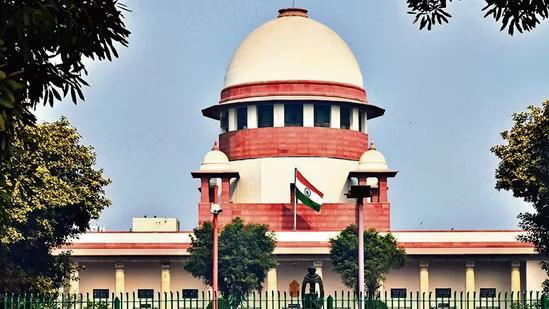
No Action Against Owners of 10 & 15-yr-old Diesel & Petrol Vehicles for 4 Weeks: SC
In a significant ruling, the Supreme Court has announced that no “coercive” action will be taken against the owners of over 10-year-old diesel and 15-year-old petrol vehicles in Delhi for a period of four weeks. This decision was passed in response to an application filed by the Delhi government, which challenged the ban on these vehicles as a pollution control measure in the capital.
The ban on old diesel and petrol vehicles was aimed at reducing the alarming levels of air pollution in Delhi. The Delhi government had implemented the ban in January this year, citing the severe health hazards posed by the toxic emissions from these vehicles. However, the ban was met with widespread resistance from vehicle owners, who claimed that it was unfair and unrealistic.
The Delhi government had argued that the ban was necessary to reduce the pollution levels in the capital, which have risen to hazardous levels in recent years. The government had also cited the Supreme Court’s previous orders, which had directed the government to take measures to reduce pollution in the city.
However, the Supreme Court has now stayed the ban on old diesel and petrol vehicles, citing the need to balance the interests of the government and the citizens. The court has asked the government to find alternative solutions to the pollution problem, rather than imposing a blanket ban on certain types of vehicles.
The court’s decision is seen as a relief for thousands of vehicle owners in Delhi, who were facing the possibility of their vehicles being seized or impounded under the ban. The decision also raises questions about the effectiveness of the ban in reducing pollution in the city.
The ban on old diesel and petrol vehicles was implemented as part of the Delhi government’s efforts to reduce pollution in the city. The government had argued that these vehicles were a major contributor to the city’s pollution problem, and that banning them would help to reduce the levels of toxic emissions in the air.
However, the ban was met with resistance from vehicle owners, who claimed that it was unfair and unrealistic. Many owners of old vehicles had argued that they could not afford to replace their vehicles, and that the ban would disproportionately affect the poor and marginalized sections of society.
The Delhi government had also been criticized for not providing adequate alternatives to the owners of old vehicles. The government had promised to provide subsidies and incentives to owners who replaced their old vehicles with new, cleaner ones. However, many owners had complained that these alternatives were not sufficient, and that the government had not done enough to support them.
The Supreme Court’s decision to stay the ban on old diesel and petrol vehicles is seen as a victory for the vehicle owners, who had been fighting against the ban. However, the decision also raises questions about the effectiveness of the ban in reducing pollution in the city.
The Delhi government had argued that the ban was necessary to reduce the pollution levels in the city, which have risen to hazardous levels in recent years. The government had also cited the Supreme Court’s previous orders, which had directed the government to take measures to reduce pollution in the city.
However, the Supreme Court has now asked the government to find alternative solutions to the pollution problem, rather than imposing a blanket ban on certain types of vehicles. The court has also directed the government to come up with a comprehensive plan to reduce pollution in the city, which would include measures such as increasing public transport, promoting non-motorized transport, and implementing emission-reducing technologies.
The Supreme Court’s decision is seen as a significant setback for the Delhi government’s efforts to reduce pollution in the city. However, the government has vowed to continue its efforts to reduce pollution, and to find alternative solutions to the problem.
In conclusion, the Supreme Court’s decision to stay the ban on old diesel and petrol vehicles in Delhi is a significant development in the ongoing efforts to reduce pollution in the city. While the decision provides relief to thousands of vehicle owners, it also raises questions about the effectiveness of the ban in reducing pollution. The Delhi government will now have to come up with alternative solutions to the problem, which will require a comprehensive plan to reduce pollution in the city.






